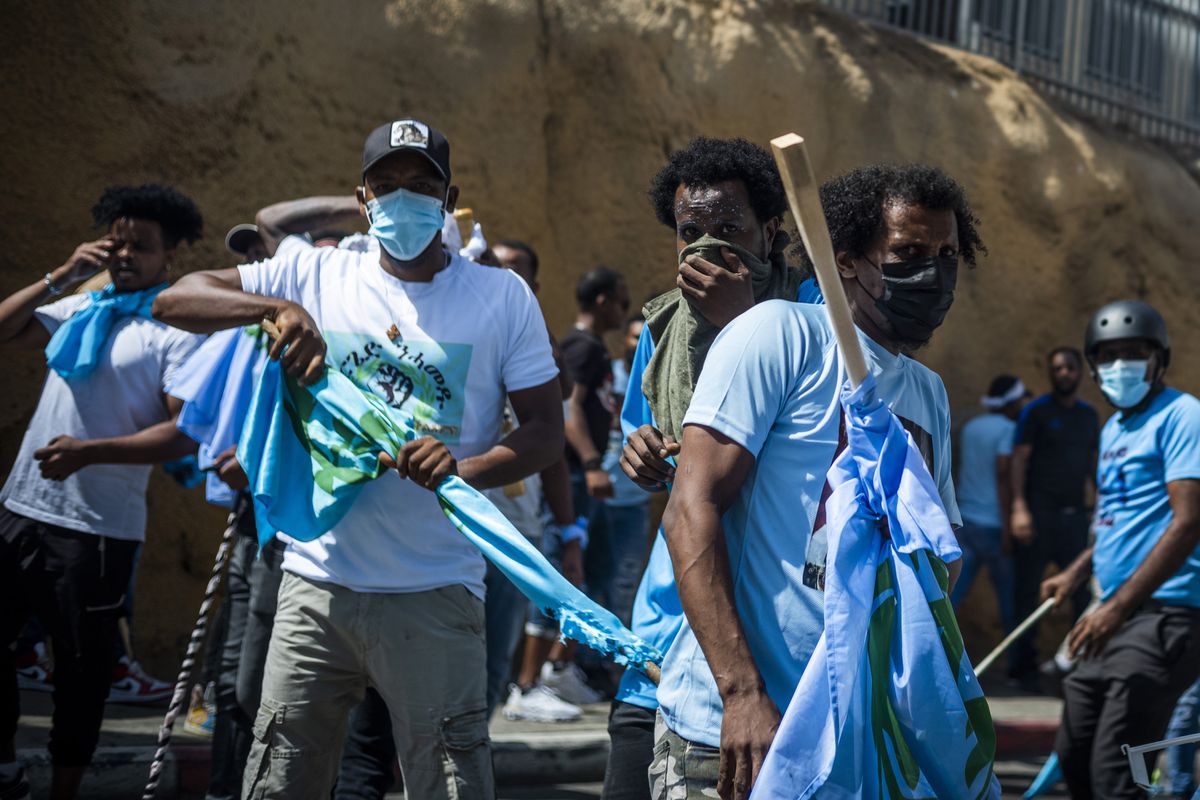Over 150 people were injured, eight seriously, during violent clashes between hundreds of Eritrean migrants in Tel Aviv, Israel, over the weekend. Protesters breached police barriers, smashing storefronts, car windows, and an event set-up at the Eritrean embassy. Riot police responded with tear gas and stun grenades, and at least 30 officers were injured in battles with demonstrators. Thirty-nine suspects, including some found to be carrying weapons, tear gas, and an electrical stun gun, were arrested.
The rioters wanted to shut down a celebration of the rule of Eritrean President Isaias Afwerki, 77, a vicious autocrat who has governed the country since it became independent in 1993. Eritrea, sometimes called “the North Korea of Africa," holds no elections, has no political parties or independent courts, restricts free speech and the press, and compels military service and forced labor. These conditions continue to spur Eritreans to flee; nearly 18,000 now call Israel home, after arriving illegally through Egypt’s Sinai Peninsula.
Even before this weekend’s shocking violence, however, Eritreans in Israel faced limited sympathy. The current government considers them “illegal job migrants,” not refugees. Former Interior Minister Eli Yishai was quoted as saying that he wanted to make their lives “so miserable that they would want to leave.” Prime Minister Benjamin Netanyahu has called them a threat to Israeli national security and “our national identity.”
The violence has now given Netanyahu grounds to act on these sentiments. On Sunday, he announced that 1,000 people supportive of the Eritrean regime would be deported and ordered ministers to draw up a plan to remove all African migrants from Israel. Right-wing politicians have chimed in their support, and Bibi may also use the situation to bolster his much-criticized Supreme Court reforms, since the court had previously stymied government attempts to deport illegal migrants. It looks like Eritreans seeking to escape tyranny back home may become political pawns in their adopted land.






